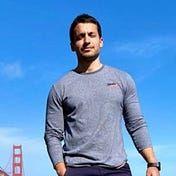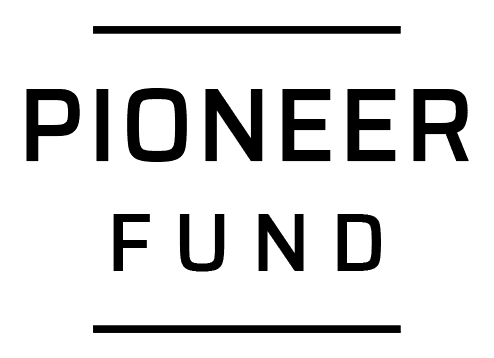Startup Spotlight: Health Hero
Startup Spotlight is an interview series where we ask health, fitness and wellness startups that use Terra, to share their wisdom from their own journey to success and also where they see fitness data going in the future.

In this Spotlight, we connected with Anthony Diaz, founder and CEO of Health Hero. Health Hero is the platform that enables people's lifestyles to cover for their basic needs, providing people with utility tokens as they make healthy decisions. Anthony's mission with Health Hero is huge, and inspirational - he's looking to renew the healthcare system, transform how we view our own health and help us understand the importance of spiritual virtues in our own lives. Let's check out what he had to say below!
Describe your company:
Anthony Diaz (AD): Health Hero is a platform that enables people's lifestyles to cover for their basic needs, steps is a piece of that puzzle.
The platform enables move-to-earn and play-to-earn concepts for everyone in our community. For example, someone can cover their basic needs by doing 100,000 steps in a given month tracked through their connected devices or answer questions about their health while getting incentivised through tokens.
We also try to find and ask questions by users and connect them with local resources. It's important to focus on the base layer, we believe fitness is a tool to find out our purpose in the world.
How did you come up with the idea?
AD: I grew up in Brooklyn, New York and saw my dad benevolently care for a generation that typically gets forgotten. He grew up in a church, and he was a dietician and nutritionist and raised me with a high sense of wellbeing for spirituality and for nutrition. He inspired me to do health information technology coming out of school, I built and coded claims systems and health IT systems which got me to see two perspectives of digital workflows in health and work with some of the largest companies in this space. Also, I discovered how important a base of hope and spirituality is as a foundation underlying mental health - you can't really solve for mental health, you have to solve for a base layer underneath it.
I lost my dad to heart disease and that put a fire under my belly, I got to see a lot of gaps - if he had his health information with him in his pocket just like he has his money in his wallet, I feel like that story would have been different.
Fastforwad to now, we feel that in the world if health insurance didn't exist, we wouldn't invent it. If we were mayors for new cities, we would create a simple utility to enable people's healthy lifestyle to cover for their basic needs.
How did you turn your idea into a company?
AD: The roadmap was a simple concept - what's the right level of reward and recognition for motivating people's healthy activity to be greater than otherwise if you didn't put the reward in front of them. For example, a $5 Starbucks gift card (or equivalent) per week along with highlighting them on a leaderboard socially was part of a killer combo - and more recognition than reward is what we found is important.
Making sure its social is key, as adults we don't get that "pat on the back" that we got as kids, and we need it more than ever. We're in this consumer world where anything we invest in we want to get credit for - so we enable people's healthy activities and steps to follow them and rewarding them for their healthy choices.
What sort of results have you seen by your users on the platform?
We find that our users' steps go up significantly. Someone that walks 3,000–5,000 steps a day is awesome, 7,000+ is world class, 14,000+ is super world class. We correlate steps with biometrics and converge it with data - we have 4 billion health data points right now. We do those correlations with their stress, anxiety, physiological needs which are the supportive pillars to mental health.
We try to find and ask questions by users and connect them with local resources. It's important to focus on the base layer, we believe fitness is a tool to find out our purpose in the world. We're reimbursing people 25% for healthy food that they purchase every week.
Furthermore, our users can play minigames in Health Hero and we want to eventually launch 20 other Health Heros off our platform and help countries to create healthy communities. Think about it like universal health income - that's what we'd invent, we wouldn't want to reinvent health insurance.
Spirituality also plays an important part of it, we think that prayer and meditation are different things and we ask people how they view themselves spiritually. We're not trying to prompt or lead them somewhere specifically, we're just trying to honour them and understand how their own health relates to their spirituality.
Our mission is really a social impact missions centred on a firm foundation of hope, everybody knows what hope is regardless of religion - it's all centred around a supportive system with a set of spiritual virtues, and that's what we're tapping into.
What have been some of the biggest challenges you've faced so far?
AD: As a healthcare company, you're thinking that you have to go in and bust the system. Once you flip that mindset, that you don't have to bust it, you can ignore it instead. We're not system busting, we're system renewing and creating something parallel that people can opt in to - for those people in the world who wake up and think the current concepts of healthcare just don't make sense to them.
Anecdotally, I just spent $1000s on my son's healthcare and couldn't find our doctor. We had to go in person to two emergency rooms, we were supposed to get Telehealth but it wasn't available. $8000 bill later...
We realised we had to stand up our own Telehealth platform and so we set up our own - I clicked on some buttons and I saw a doctor in less than 19 minutes and that cost me 25 bucks. That's the type of wake up that people are experiencing with current healthcare systems.
A lot of the initiatives that we promote come from the community, it doesn't have to come from the doctors. This provides people with a supportive group that helps us navigate what a proper plan and cost structure should look like and what works best for our community.
How are you using health data?
AD: Trends over time, how the data is related to other variables. We enable people to answer questions to earn utility tokens. We're converging this against trends of how someone views their own stress and anxiety, we encourage people to take pictures of their workouts. We encourage people to take pictures of food, we're using the GPT3 open API to be able to interpret and extrapolate meaning for people. We're honouring all of this data and we're asking a lot of questions.
For example, we're launching the Go Quiz where people are getting points for quizes - it's about nutrition and people's perceptions of fitness and what is healthy, how many steps a day should you walk? How many fruit and vegies should you eat a day? They're answering questions all day long. Finally, converging this into our AI algorithms is the aim and we're using quantum computing to pull out the most important information and trends.
Health insurance companies don't have the data to support a lot of areas, that's where we operate. For example our bot can say to someone "Oh you don't have a place to stay tonight? There's a shelter right around the corner from you". If people are suffering from domestic violence, we can support them. We see ourselves creating an opportunity to serve insurance companies as customers in the short-term but also adding lines of business to their models and bringing greater paradigms to the world of what a modern health insurance offering looks like.
We're also looking to allow people to get reimbursed for growing their own gardens... the sky is the limit but at the end of the day we want people to be able to live a healthy lifestyle and have their most basic health needs covered.
What do you think are the current gaps in health data today?
AD: I think it's all centred around physiological needs and growing the concept of what this means. I don't think we can rely on municipalities, governments, or healthcare policy to broaden the definition and focus of these supportive physiological needs. We think its social determinants to health and spiritual determinants to health, this hope aspect is key. The supporting virtues of hope - that's where it's at, that's what is missing. If a person lost a parent, then they would lose a lot of hope - that's not captured today. But we're also looking to keep that information in one place and allow people to carry it in their pocket as they travel between different states to be able to access it with ease whenever they need to.
The gaps - its spiritual needs, its hope, its spiritual virtues and this has the highest correlation to health.
They're only hard to find if you don't ask them. If you don't design a fun game and experience where people want to share that information then people won't engage. Having these answers and then correlating this with outcomes we can start to understand more about the people on our platform.





